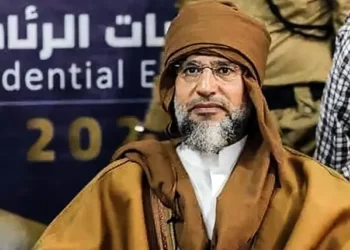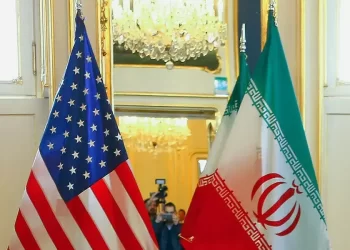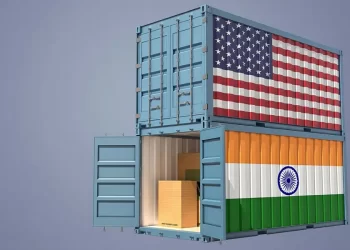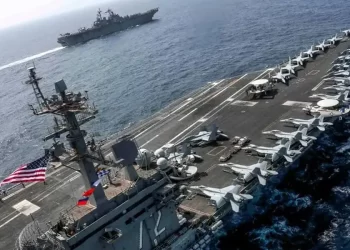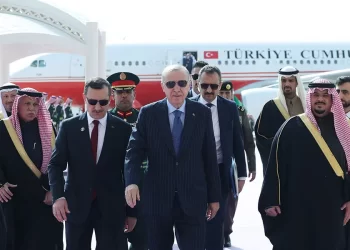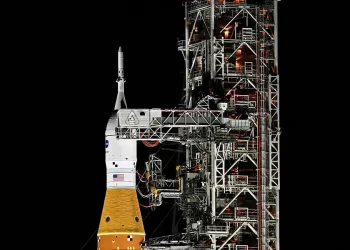It began last month with the arrest of a Russian deputy defense minister. Then the head of the ministry’s personnel directorate was hauled into court. This week, two more senior military officials were detained. All face charges of corruption, which they have denied.
The arrests began after President Vladimir Putin began his fifth term and shuffled his ally, longtime Defense Minister Sergei Shoigu, into a new post.
It immediately raised questions about whether Putin was reasserting control over the Defense Ministry amid the war in Ukraine, whether a turf battle had broken out between the military and the security services, or whether some other scenario was playing out behind the Kremlin’s walls.
A look at what’s behind the arrests and why they are happening now:
Corruption scandals are not new and officials and top officials have been accused of profiting from their positions for decades.
Graft in Russia functions as both a carrot and stick. It’s a way of “encouraging loyalty and urging people to be on the same page,” as well as a method of control, said Sam Greene, director of Democratic Resilience at the Center for European Policy Analysis.
Putin wants everyone to have “a skeleton in their closet,” security expert Mark Galeotti said on a recent podcast. If the state has compromising material on key officials, it can cherry-pick whom to target, he added.
Corruption, “is the essence of the system,” said Nigel Gould-Davies a senior fellow at the International Institute for Strategic Studies in London.
The war in Ukraine has led to ballooning defense spending that only has increased opportunities for graft.
Former Deputy Defense Minister Timur Ivanov — the first official arrested in April and the highest-ranking one so far — oversaw large military-related construction projects and had access to vast sums of money. Those projects included rebuilding parts of Ukraine’s destroyed port city of Mariupol.
The team headed by the late opposition leader Alexei Navalny alleged that Ivanov, 48, and his family owned elite real estate, enjoyed lavish parties and trips abroad, even after the war began. They also alleged that Ivanov’s wife, Svetlana, divorced him in 2022 to avoid sanctions and to continue living a luxurious lifestyle.
Putin spokesman Dmitry Peskov said Thursday the recent arrests are not a “campaign” against corruption but rather reflect ongoing activities in “all government bodies.”
Peskov and Ivanov were once part of an embarrassing episode caught on camera. Navalny’s team has shared 2022 images of the Kremlin spokesman celebrating at a birthday party for Ivanov’s former wife. In the video, Peskov, with Ivanov at his side, is seen wearing a watch estimated to cost $85,000.
In April, the Investigative Committee, Russia’s top law enforcement agency, reported that Ivanov is suspected of taking an especially large bribe — a criminal offense punishable by up to 15 years in prison.
Since then, other arrests on bribery charges have included Lt. Gen. Yury Kuznetsov, head of the Defense Ministry’s personnel directorate; Maj. Gen. Ivan Popov, a career soldier and former top commander in Ukraine; and Lt. Gen. Vadim Shamarin, deputy chief of the military general staff. Shamarin is a deputy to Valery Gerasimov, the chief of the general staff.
A fifth ministry official was reported arrested Thursday — Vladimir Verteletsky, who headed a division in the ministry’s defense procurement department. He was charged with abuse of office that resulted in damages worth over 70 million rubles (about $776,000), the Investigative Committee said.
Also, the deputy head of the federal prison service for the Moscow region, Vladimir Telayev, was arrested Thursday on charges of large-scale bribery, Russian reports said.
The arrests suggest that “really egregious” corruption in the Defense Ministry will no longer be tolerated, said Richard Connolly, a specialist on the Russian economy at the Royal United Services Institute in London.
Shortly after his inauguration, Putin replaced Shoigu as defense minister with Andrei Belousov, an economist. Peskov said Russia’s increasing defense budget must fit into the country’s wider economy.
Peskov said Russia’s defense budget is 6.7% of gross domestic product. That is a level not seen since the Soviet era.



